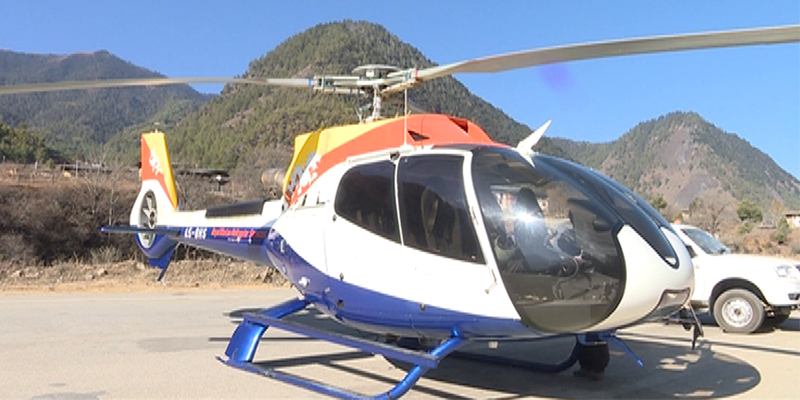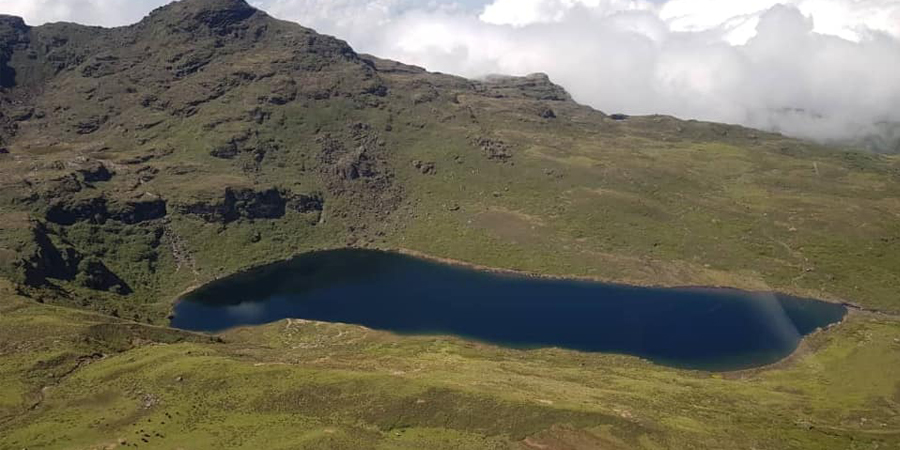
The pandemic has helped in promoting domestic tourism. With the border closed, people in the country started going on pilgrimage and sightseeing across the country. This has helped the businesses dependent on tourism to stay afloat. However, businesses in Haa have a different tale to tell. Norb-Tsho-Na-Pata in the district has been seeing an increasing number of visitors of late. But the businesses could not reap the benefit, all because of the helicopter service.
 Norb-Tsho-Na-Pata in Haa is almost two days walk from the nearest road point. In the past, visitors have to stay in the hotels and homestays in Haa before they begin the trek. And the number of visitors increased after the closure of the border. Business entities in Haa thought this as a blessing and then helicopter service came along, killing their hopes altogether.
Norb-Tsho-Na-Pata in Haa is almost two days walk from the nearest road point. In the past, visitors have to stay in the hotels and homestays in Haa before they begin the trek. And the number of visitors increased after the closure of the border. Business entities in Haa thought this as a blessing and then helicopter service came along, killing their hopes altogether.
“The helicopter service has affected the business in Haa. People visiting Norb-Tsho-Na-Pata used to bring business for us in the past. We lost this opportunity after this service was introduced,” said Lhendup Wangdi, a Hotelier in Haa.
“Haa is a small district. There are not many visitors too. After the helicopter service was started, our business went downhill,” added Chenba Dorji, also a Hotelier.
This has not only affected the hoteliers and homestay owners but also those who provide porter and pony services.
“In the past visitors use our services. They ask for porter and pony to go to places. But the lockdowns and then the helicopter service ruined our businesses,” said Sonam, in Haa.
“We provide horses and porter services in the past. It was a good business opportunity. But these were all lost after the helicopter service started,” added Gado.
According to the residents, if the helicopter service continues even after the country reopens to tourism, they fear there would be no tourists staying in Haa.
“Tourists can afford the helicopter service. They will go for it. So tourism will not benefit Haa if this service continues,” Penjor, a hotelier in Haa said.
“There was no benefit from the domestic tourism, and if it is the same with the international tourists later, then Haa will never see any development,” added Chenba Dorji.
They have even requested the Dzongkhag Administration to intervene.
“Although the helicopter service has benefited the country at large, we have received complaints from people here about its adverse effect on the business. But we don’t see any room to intervene since it’s the visitors’ right to choose the services. However, we are looking at how to address the problems the people in Haa are facing,” said Rabgay Tobden, the Haa Dzongda.
The helicopter service is benefiting the elderly and people living with disabilities to reach such faraway sites.
“We won’t be able to walk such a distance as we are old now. We are thankful to the government for providing this service which has enabled us to visit the sacred lake before we die,” said a visitor.
“Since I can’t walk, I took this opportunity to take the helicopter ride,” added another.
The helicopter service is also helping the Jigme Khesar Strict Nature Reserve in preserving the endangered species. Norb-Tsho-Na-Pata falls under this protected area. According to officials, since visitors are now taking helicopter rides, there is no danger of them harming the flora and faunas on their way.
However, with the helicopter service bringing in more people to the sacred lake, officials fear that there is a risk to the endangered plant and animal species around the lake.
Meanwhile, there are about twenty homestay operators and six three-star hotels in Haa.
Chhimi Dorji, Haa
Edited by Sonam








